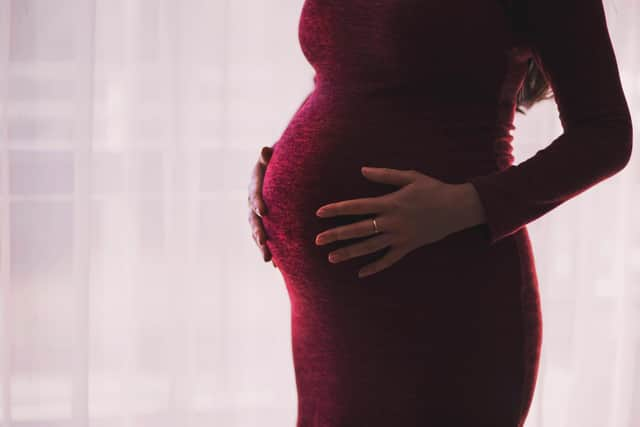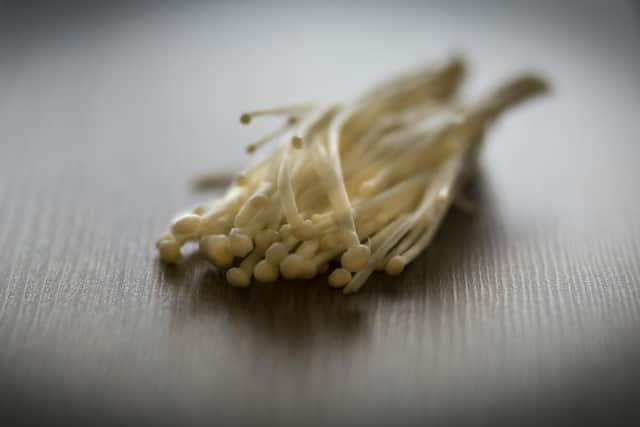Listeria warning over Enoki mushrooms, what do they look like and how to keep safe
and live on Freeview channel 276
Health experts are advising that Enoki mushrooms are thoroughly cooked before eating due to possible presence of Listeria monocytogenes and the risk of severe disease.
The FSA said that as the risk of serious illness from listeriosis increases with age, older people should also be aware of the risks associated with eating these products.
Advertisement
Hide AdAdvertisement
Hide AdAll consumers are advised to follow instructions on packaging, to apply good food hygiene practices when handling Enoki mushrooms and to store them in the fridge at 5 degrees Celsius or below.


Enoki mushrooms, sometimes labelled as Enokitake, Golden Needle or Lily Mushrooms, are tall, white, thin-stemmed mushrooms, which are commonly used across Asia.
While they are usually served cooked, they are occasionally served raw, such as in salads or, as a garnish.
The FSA was alerted to the presence of Listeria monocytogenes in Enoki mushrooms following a number of food safety alerts in the USA and Canada in 2021. While there have not yet been any known cases of listeriosis linked to Enoki mushrooms in the UK, analysis of recent FSA and local authority partner sampling and testing data found the presence of Listeria monocytogenes in 13 of 40 samples of Enoki mushrooms tested, sometimes at high levels. Listeria continues to be detected in product coming into the UK.
Advertisement
Hide AdAdvertisement
Hide AdThe FSA said that labelling of Enoki mushrooms is not always clear or consistent and so consumers may not have the information they need to handle and consume the product safely.


Tina Potter, head of incidents at the FSA, said: “The Food Standards Agency (FSA) and Food Standards Scotland (FSS) advice is that Enoki mushrooms can be contaminated with Listeria monocytogenes and should be stored in the fridge and handled carefully. You should properly clean any surfaces and utensils you’ve used to prepare them and wash hands.
"Those who are pregnant or have weakened immune systems should cook Enoki mushrooms thoroughly before eating them as this will destroy any Listeria monocytogenes present, which can cause serious illness in vulnerable consumers.”
The FSA is working with local authorities and port health authorities to advise food businesses and importers of the risks associated with Enoki mushrooms and remind them of the food safety and labelling requirements.
Advertisement
Hide AdAdvertisement
Hide AdIf you have eaten these products recently, you do not need to do anything, unless you get symptoms of the infection. These include a high temperature of 38C and above, aches and pains, chills, feeling and being sick, or diarrhoea.
Anyone who thinks they may have listeriosis should contact their GP if they are unwell and pregnant or have a weakened immune system.
